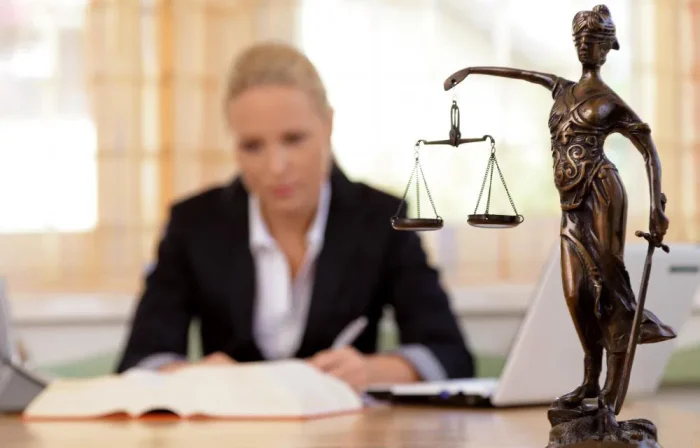
Asset and property division in divorce can be a challenging process to navigate.
All the assets amassed throughout the marriage are typically divided between the two parties during a divorce. Real property (the home and any land), physical property (bank accounts, cars, jewelry, etc.), and intangible property are all types of property that can be awarded to either party.
To divide the assets and debts equitably, both parties must produce a list of their possessions and obligations. You and your spouse can negotiate how to divide your assets, and if you agree then you can submit a marital settlement agreement to the court.
If you cannot agree, the court will split your property for you in a process known as “equitable distribution.” After you identify all of your assets and debts, the court will decide whether assets are “marital property” or “separate property.”

When we divorce, what happens to our assets and debt?
According to state law, property division can be done in one of two ways: either based on community property or equitable division.
Community property states include Arizona, California, Idaho, Louisiana, Nevada, New Mexico, Texas, Washington, and Wisconsin.
In community property states, assets and debts amassed during the marriage are considered community (although there can be exceptions). Property that is owned by a spouse prior to marriage or acquired by one spouse during the marriage by gift or inheritance is typically separate property. In the divorce, community property is typically split equally, while separate property is confirmed to its owner.
In equitable distribution states, instead of merely dividing the property’s value in half, a judge will assess what is equitable or reasonable. This might mean that one spouse receives a greater distribution of property than the other.
The total marital estate (including assets and debts) will need to be taken into consideration in the division. In achieving a settlement there are many factors to consider, including selling the home, transferring a portion of retirement, or buying out a spouse’s ownership stake in a business. Knowing your rights is important, and a divorce lawyer can help you.
Marital Assets
Things acquired while you were married are considered marital property. For instance, a car you purchased jointly when you were married would be considered marital property. During a divorce, the court will divide marital property between the couple.

Will my house be sold in a divorce?
There are many factors that must be considered as it relates to the home in a divorce. For instance, can one spouse buy the other spouse out of their equity interest? Are there other assets to equalize the value of the home? Is the spouse able to refinance to remove the other spouse from mortgage liability? In the event the parties cannot agree on one spouse or the other being awarded a house, the court may require the house to be sold.
What are the rights to exclusive use of the house while a divorce is pending?
If the parties can’t agree, the Court can order that one spouse has exclusive use of the home during the pendency of the divorce. There are several considerations in making this determination, for instance, who will pay the mortgage and utilities during this interim period. Where will the other spouse go if they cannot remain in the home? What are the costs associated with additional housing?
What if I deposited community income into a bank account I had prior to marriage?
You will need a divorce attorney, and perhaps a financial expert to evaluate the transactions in the account during the marriage. It is possible that the entire account will be considered “commingled” meaning that it is impossible to trace the funds that went into and out of the account and determine what portion of the account was separate and what portion is community. In such a situation, the Court may determine that the account is commingled and has lost its separate nature, in which case the account would be divided between the two spouses.
In the event you have a pre-marital bank account or asset, it is important that you keep that property separate to avoid commingling or otherwise entitling the community to an interest in the separate asset.

What will happen if the value of my separate property increases while we are still married?
This is a complicated analysis, and it depends on what type of separate property asset is at issue. It is important to consult with a divorce attorney to understand the nuances of the law. Generally, if the increase in value of separate property occurs solely by chance (for instance, random market fluctuations) and not through the labor or efforts of a spouse or additional investments then the increase may not be considered community. However, if you, or your spouse assisted in increasing the value, such as by labor or efforts to improve the property, or contributing funds to make improvements, the increased value might be considered marital property.
Debt
During a divorce, debt acquired during the marriage is also split between the couple. Both parties must provide a list of their debts/liabilities. Division of debts in divorce generally occurs in the same manner as property distribution.
If a debt is incurred during the marriage, it is typically shared as marital property between the parties.
If the Court divides a debt does that mean the Creditor is bound by the Court’s division?
The short answer is no. Although the divorce court may allocate the division of debts, a creditor is not bound by the Court’s order. This means that if the spouse who is awarded the debt stops paying it, the creditor can seek repayment from either spouse without regard to what the Divorce Decree states. It is important to talk to a divorce attorney to understand what rights you may have in this situation.

Plans for retirement and pension
The division of pension and retirement assets is similar to the division of other marital property. In other words, if you have retirement accounts that existed prior to marriage, the account itself is likely your separate property, however to the extent that there were contributions by you, or your employer, during the marriage, there is a community component to your retirement accounts that will need to be taken into consideration in dividing the account, and the total marital estate.
Divorce is complex: legally, financially, and emotionally. It is important to consult with a divorce attorney to understand your rights and guide you through the process. You do not need to know all of the assets and debts at issue to start the divorce, part of the divorce process involves both parties putting together the list of assets and debts, and your attorney can help you to gather information that your spouse has access to, but you do not.
This information was generously provided by the law office of Lawrence & Jencman PLLC, a family law attorney in the Phoenix, AZ area.
















